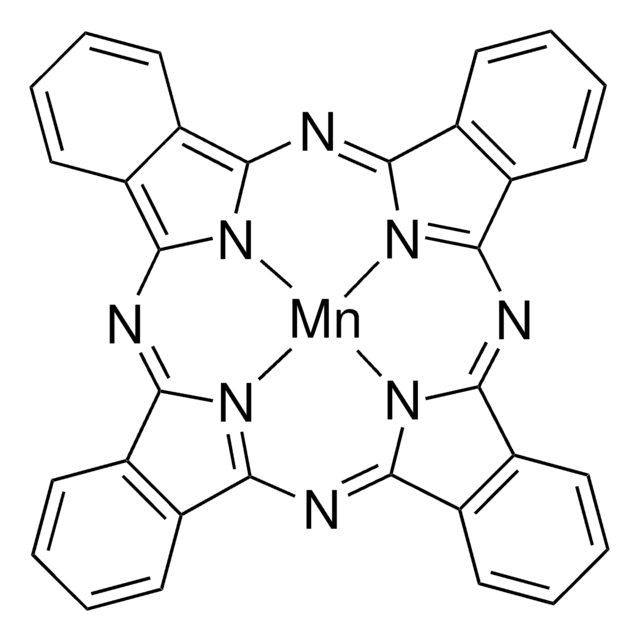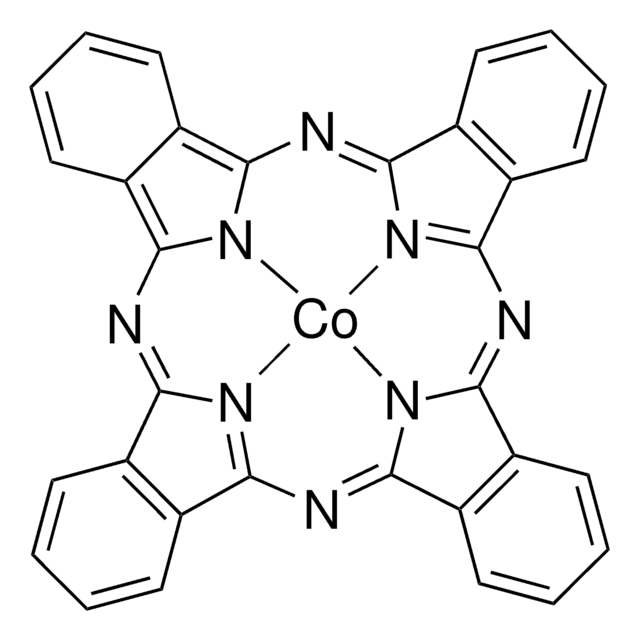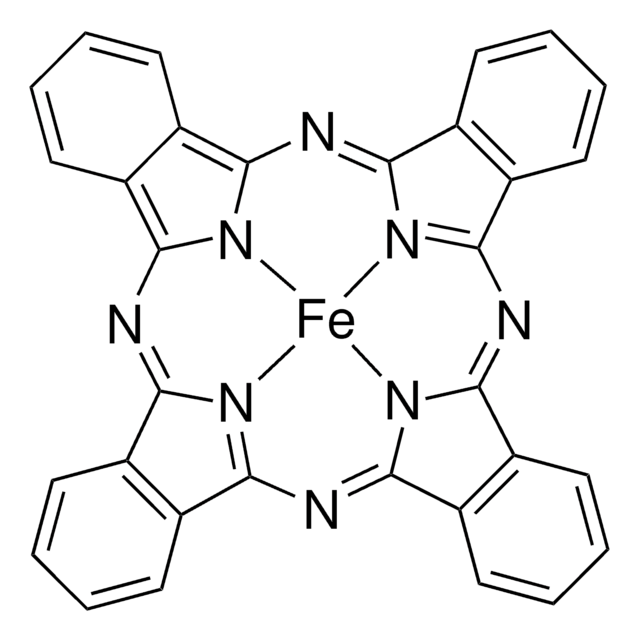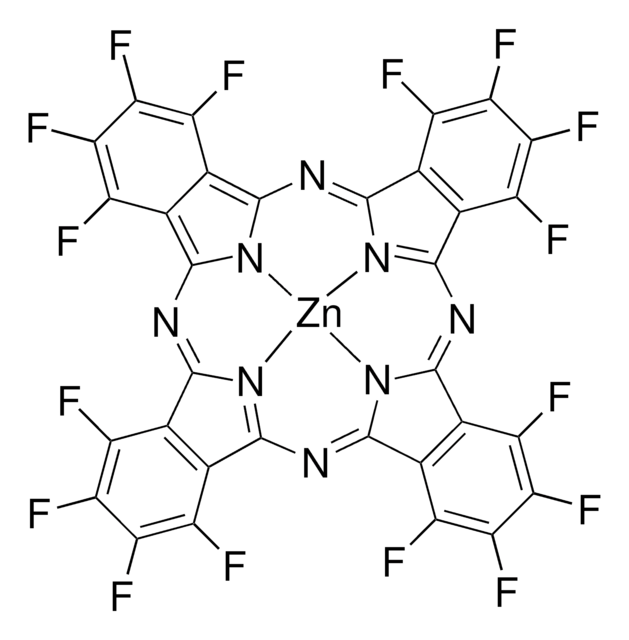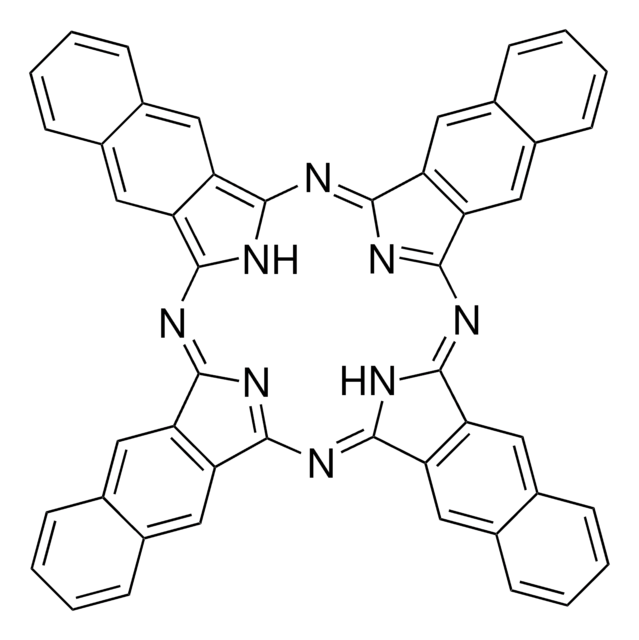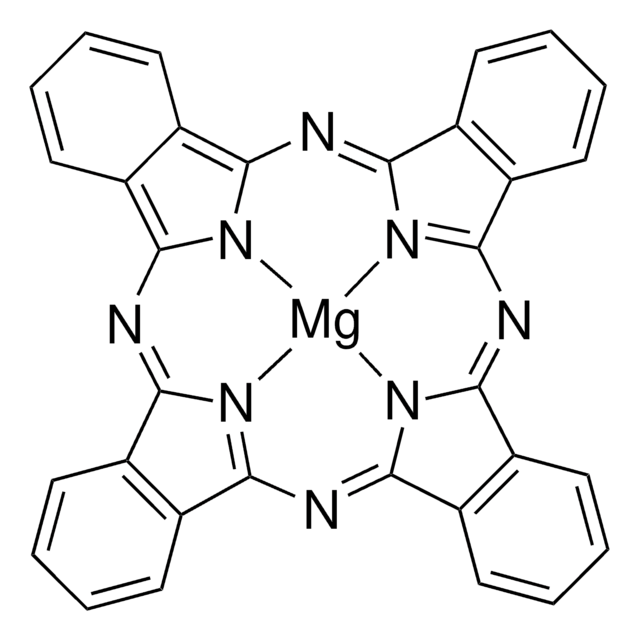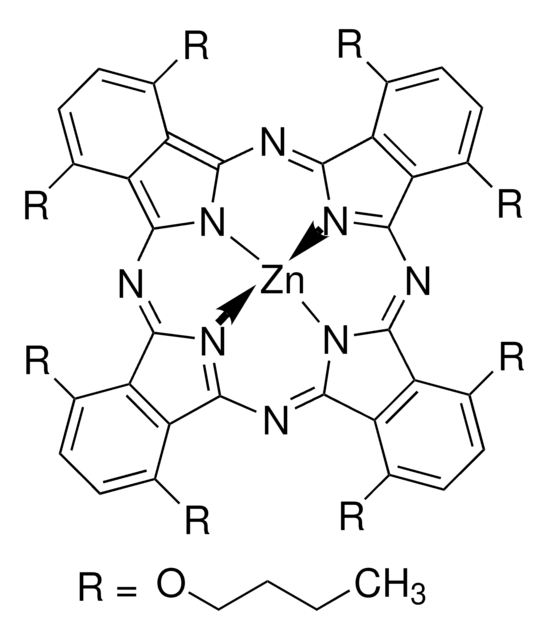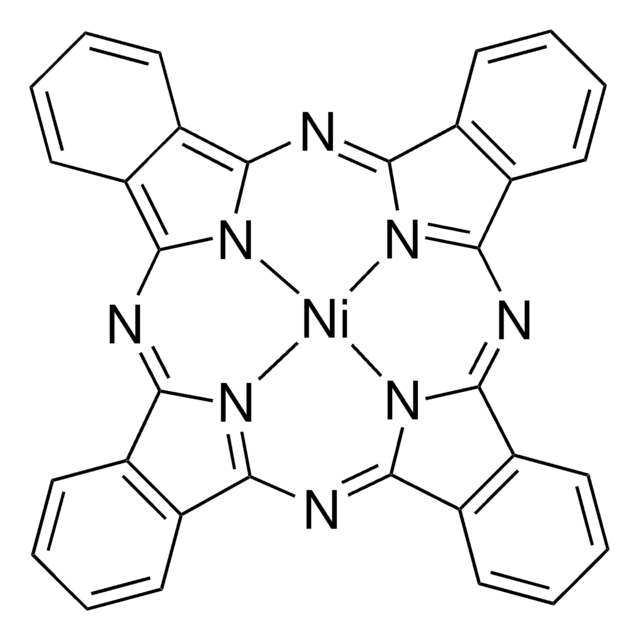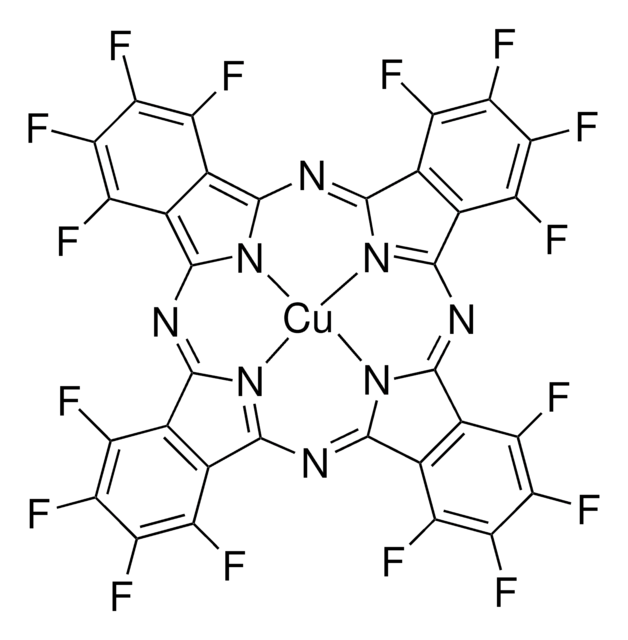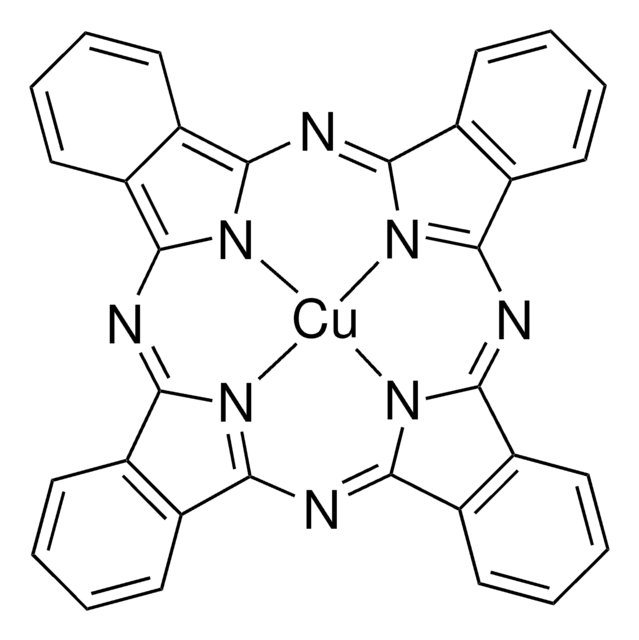341169
Zinc phthalocyanine
Dye content 97 %
Synonyme(s) :
Phthalocyanine zinc salt
About This Item
Produits recommandés
Composition
Dye content, 97%
Niveau de qualité
Pertinence de la réaction
reagent type: catalyst
core: zinc
λmax
701 nm
Énergie orbitale
HOMO 5.17 eV (CV)
LUMO 3.78 eV (CV)
Performance des dispositifs OPV
ITO/ZnPc:P60 (1:1)/Bphen/Ag
Chaîne SMILES
[Zn]1n2c3nc4nc(nc5n1c(nc6nc(nc2c7ccccc37)c8ccccc68)c9ccccc59)c%10ccccc4%10
InChI
1S/C32H16N8.Zn/c1-2-10-18-17(9-1)25-33-26(18)38-28-21-13-5-6-14-22(21)30(35-28)40-32-24-16-8-7-15-23(24)31(36-32)39-29-20-12-4-3-11-19(20)27(34-29)37-25;/h1-16H;/q-2;+2
Clé InChI
PODBBOVVOGJETB-UHFFFAOYSA-N
Vous recherchez des produits similaires ? Visite Guide de comparaison des produits
Description générale
Application
Code de la classe de stockage
11 - Combustible Solids
Classe de danger pour l'eau (WGK)
WGK 3
Point d'éclair (°F)
Not applicable
Point d'éclair (°C)
Not applicable
Équipement de protection individuelle
Eyeshields, Gloves, type N95 (US)
Faites votre choix parmi les versions les plus récentes :
Déjà en possession de ce produit ?
Retrouvez la documentation relative aux produits que vous avez récemment achetés dans la Bibliothèque de documents.
Les clients ont également consulté
Articles
Single-walled carbon nanohorns(SWCNHs) - Find manufacturing, material properties, and applications of carbon nanohorns.
While dye sensitization as the basis for color photography has been accepted for a very long time,1 attempts to use this principle for the conversion of solar light to electricity generally had resulted only in very low photocurrents, below 100 nA/cm
Notre équipe de scientifiques dispose d'une expérience dans tous les secteurs de la recherche, notamment en sciences de la vie, science des matériaux, synthèse chimique, chromatographie, analyse et dans de nombreux autres domaines..
Contacter notre Service technique